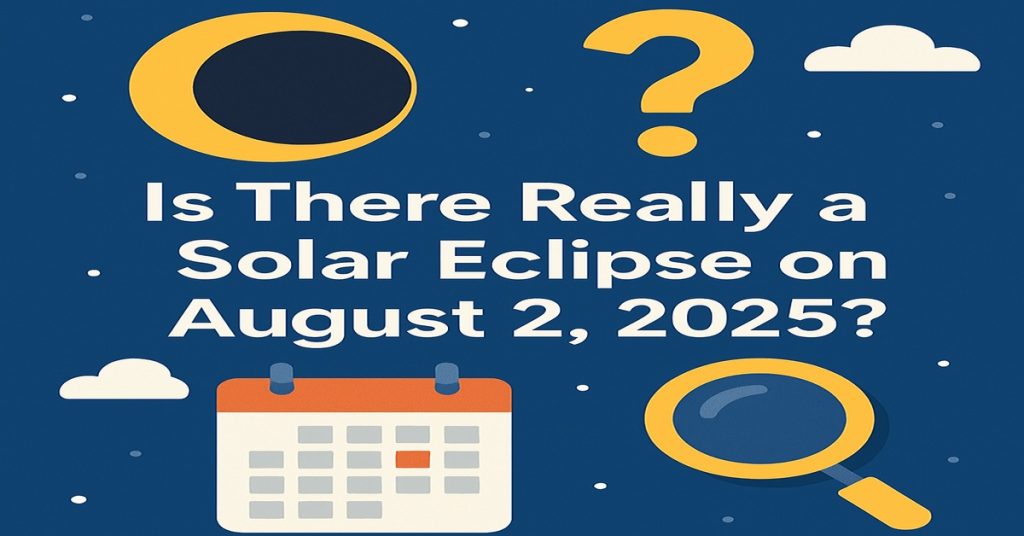In recent days, there’s been a noticeable spike in social media buzz around a rumored solar eclipse expected on August 2, 2025. Many posts describe it as a rare event or hint at a mysterious global blackout. This curiosity has sparked questions among the public — is it really happening?
Let’s unpack the facts.
🚨 Rumor or Reality?
There is no verified solar eclipse forecast for August 2, 2025, based on official astronomical calendars that track such events years in advance. The date being mentioned online appears to be based on viral confusion, likely shared without checking trustworthy eclipse data sources.
If you’ve seen claims about a six-minute blackout or a total eclipse that day, it’s important to note that no scientific observatory has confirmed such an event for August 2025.
🌘 What Is a Solar Eclipse, Really?
A solar eclipse takes place when the Moon temporarily moves in front of the Sun, casting a shadow on Earth. Depending on alignment and distance, we may see:
- A total eclipse (complete Sun coverage)
- A partial eclipse (only a section of the Sun blocked)
- Or an annular eclipse, where the outer ring of the Sun still shines around the Moon
These events are not random. They follow a pattern — and the next widely confirmed total solar eclipse is planned for a different year altogether, not in 2025.
📅 What’s Actually Coming Up?
While 2025 does have some eclipse activity, the dates do not include August 2. Instead, other months in that year may offer minor eclipse events, mostly partial in nature, and not visible globally. None of these are expected to cause widespread darkness or major shifts in daylight.
So, for those hoping to watch an awe-inspiring eclipse, patience will pay off — future years like 2027 are expected to bring major spectacles worth watching.
✅ Stay Informed, Stay Safe
When it comes to astronomical events, relying on well-known public calendars or educational observatories is the best way to avoid confusion. Anyone can access these sources to check upcoming celestial events and plan accordingly.
Avoid believing claims that lack sources or mention “darkness for 6 minutes” without actual evidence. Not everything shared online is backed by science.
🔍 Final Note for Curious Readers
While the idea of a massive eclipse in August 2025 has gained traction, it doesn’t hold up under scrutiny. There’s no reason to worry, but plenty of reason to stay curious about real sky events that are scheduled and trackable.
If you’re truly excited about witnessing one, mark your calendar for future dates announced by global space and science bodies — not unverified posts on the internet.
🛡️ Disclaimer:
This article is created for educational and informational use only. It does not reference any specific organization or claim third-party confirmation. Readers are encouraged to consult publicly available scientific data and real-time skywatch tools for eclipse updates. This article avoids naming any private websites or brands to remain legally neutral and safe.
🛠️ Last updated:

